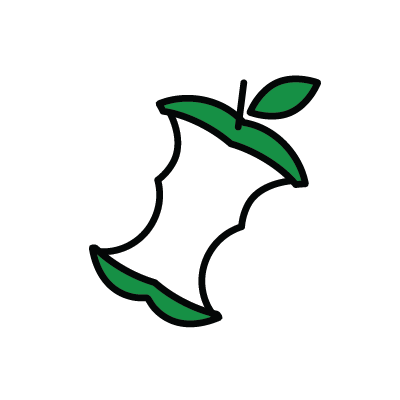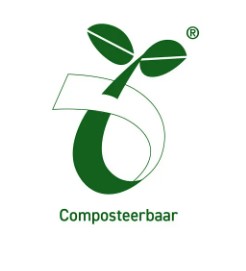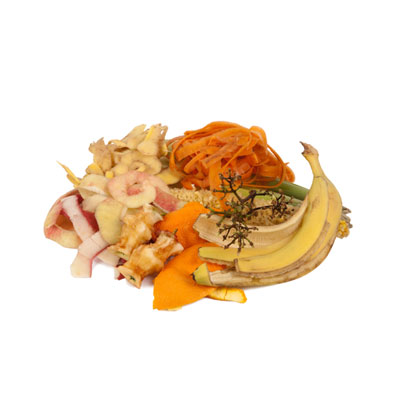
Organic waste (GFT/E in Dutch) is vegetable, fruit and garden/food waste. This involves natural or organic waste such as fruit peels and garden waste with a maximum length of 30 cm.
Note: food scraps like chicken or fish bones and leftovers also go in the green container!

How is the waste collected?
Single-family houses have a green waste container for their organic waste. The waste calendar on www.mijnafvalwijzer.nl shows when this container is emptied. Residents of flats and apartments can put their organic waste in the underground container.
Organic waste in short
-
Use the green bin for your organic waste
-
Present your container on time on the collection days only
-
Compost is made from vegetable, fruit and garden waste
- If you use an underground container, your organic waste can be put in there
- In some areas, we are testing possibly separating organic waste for flats and apartments in the future
What qualifies as organic waste?
Yes
- Compostable bags with the Kiemplant logo
- Peelings and remains of vegetables, fruit and potatoes
- Residues of cooked food, such as meat and fish residues (including bones and scales)
- Potatoes and potato peels, bread, dough, rice and pasta
- Tea bags and coffee pads
- Small rodent litter (hay, straw, sawdust) with poo
-
Flowers and plants
- Fine garden waste
No
- (Compostable) packaging without Kiemplant logo
- Gum
- Diapers and incontinence material
- Coffee capsules
- Cat litter, bird litter, dead animals
- Tobacco, cigarettes, ash
- Plant pots, stones, timber, metal

Logo Kiemplant
This is how to present your waste container
It's very helpful for our drivers (and yourself) if you offer your waste container correctly. Here are some tips:
- Place the waste container at a maximum of 50 centimeters away from the side of the pavement
- Leave at least 30 centimeters between two containers or between your container and another obstacle (like a streetlight or a parked car)
- Place the opening side of the container facing the street
- Make sure the lid can be closed and is closed
- A waste container cannot weigh more than 70 kilos.
What happens to the waste?
Organic waste is a resource for compost and biogas. It can also be fermented. This creates biogas which can generate electricity and warmth. Processing organic causes less stress for the environment, saves resources and is cheaper than burning the waste.

Frequently asked questions about organic waste
If you live on the ground floor of a flat or container, you can request an organic waste container (groenbak) through customer service. The conditions are that you should be able to store the container on your ground or storage and that there should be a collection route in your neighbourhood.
Organic waste is typically collected once every two weeks. You can present your green container (kliko) on your collection day. You find the schedule on our waste calendar. The amount of collection moments can be different in fall/winter.
- Put the container in a cool spot away from the sun.
- A few props of newspaper (or woodcurls, hay etc.) can be put at the bottom of the container to prevent leaving any organic waste behind.
- Airing the container, though it may sound contradictory, gets continuous air in the container, preventing excessive smells.
- Pack easily rotten food scraps like meat and fish in a newspaper before disposing of them.
- Do not throw moist waste in the container. For example, let your grass dry after mowing it.
- Clean the container regularly using water and maybe green soap. Do not use chlorine, this is bad for the environment.
If your container hasn't been fully emptied, this can be an inconvenience.
Check the contents of your container to see if there's no blockage. When the container is too tightly packed, this can also be a problem with emptying the container.
In these cases we kindly request you remove the blockage. Present the container at the next regular collection date.
Cure does not provide extra collection in these cases.
Tip!
"Do not throw any moist waste in the container. Allow mown grass to dry for a day."





